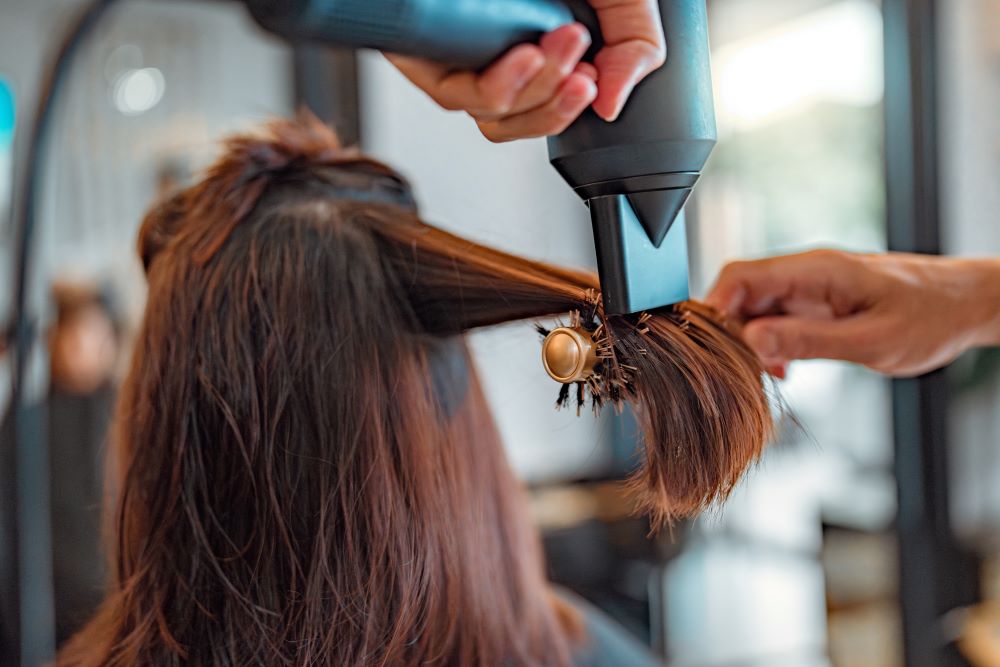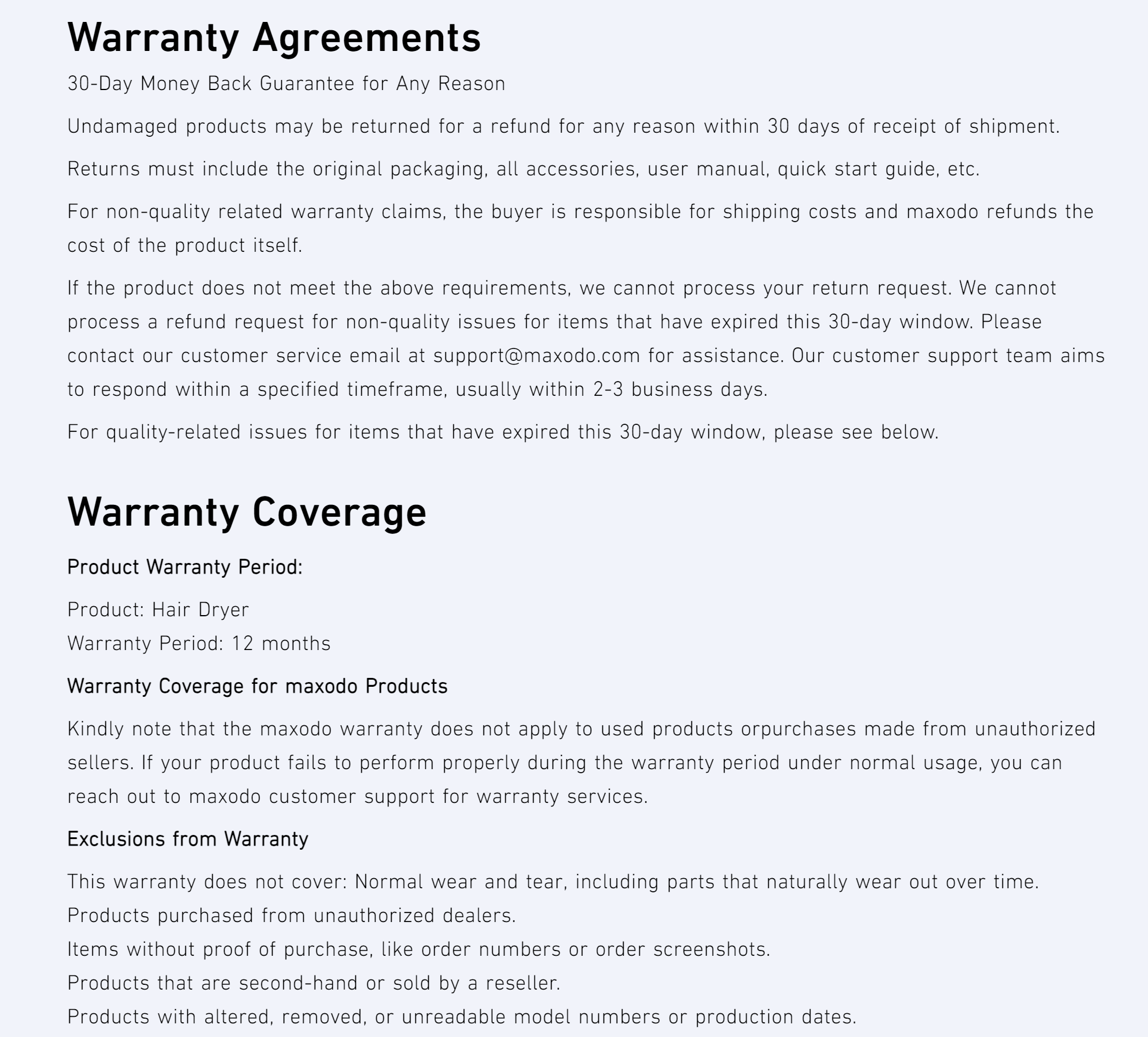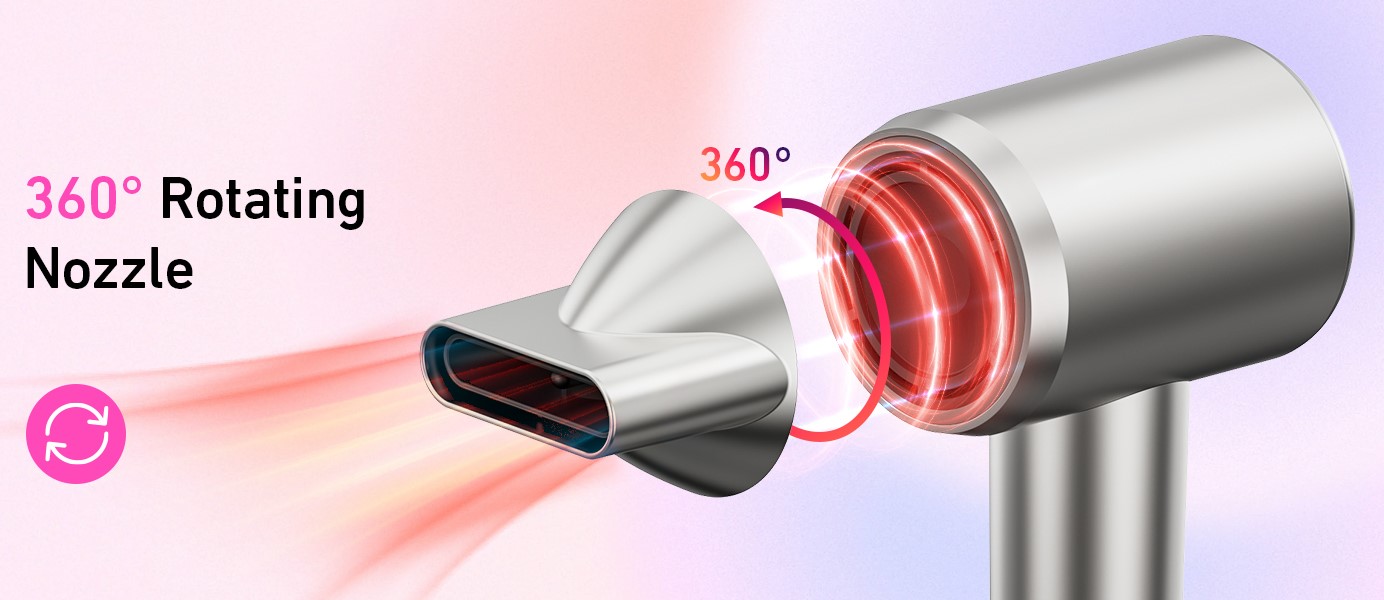
- Home
- Hair Dryer
- Hair Dryer Warranties: What to Look For and Why They Matter
Hair Dryer Warranties: What to Look For and Why They Matter
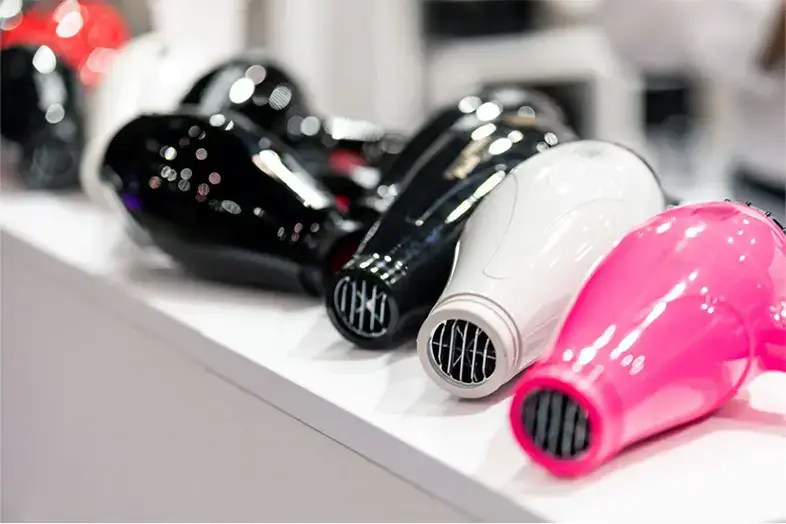
When it comes to purchasing a hair dryer, many of us focus on features, brand reputation, and price. However, there’s another crucial factor that often goes overlooked: the warranty. Warranties can play a significant role in ensuring you get the most out of your investment, offering protection against unexpected malfunctions or defects. In this section, we’ll delve into why hair dryer warranties matter and provide a brief overview of what they typically cover.
A warranty on your hair dryer isn’t just a piece of paper; it’s a promise from the manufacturer to stand behind their product. This assurance is particularly vital for an appliance like a hair dryer, which undergoes regular use and, consequently, wear and tear. A solid warranty can save you from the hassle and expense of repairing or replacing a faulty device, ensuring that your grooming routine remains uninterrupted.
Most hair dryer warranties cover any defects in materials or workmanship, which means if your hair dryer stops working properly due to a manufacturing flaw, the company will repair or replace it at no extra cost. However, warranties usually have limitations, such as not covering damages resulting from misuse, accidents, or normal wear and tear.
Understanding Hair Dryer Warranties
A deeper understanding of what warranties are and the types available can help you make an informed decision when purchasing your next hair dryer.
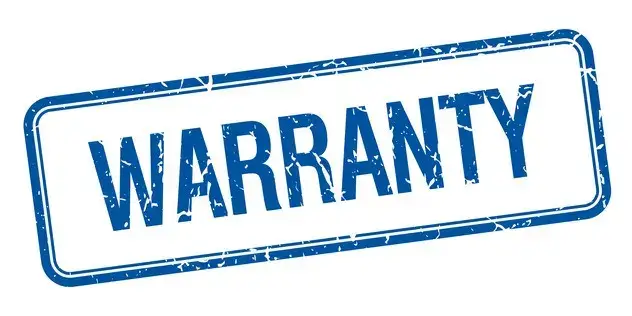
Definition of a Warranty
A warranty is a legally binding commitment from a manufacturer or seller to repair, replace, or refund a product if it fails within a specified period. This guarantee demonstrates the confidence a company has in its product’s quality and durability.
Types of Warranties for Hair Dryers
Manufacturer Warranties: These are standard warranties provided by the company that made the hair dryer. They typically last for a limited time, often one to two years, and cover defects in manufacturing and workmanship.
Extended Warranties: Sold separately, extended warranties extend the coverage period beyond the manufacturer’s original warranty. They can be purchased from the manufacturer, retailer, or a third party and may offer additional protections not included in the standard warranty.
What is Typically Covered
Parts: If a specific component of the hair dryer fails, the warranty may cover the replacement of that part. This coverage is crucial for more expensive models, where parts can be costly.
Labor: This includes the cost of the work required to repair the hair dryer. Labor can be a significant expense, so having it covered under warranty can save you a considerable amount of money.
Defects in Manufacturing: If the hair dryer has a flaw or defect that originates from its manufacturing process, the warranty will usually cover repairs or replacements. This assurance protects you from the financial burden of a manufacturer’s mistake.
Why Warranties Matter
Protection Against Defects and Malfunctions
Warranties are crucial as they protect consumers from the inconvenience and potential hazards of defects and malfunctions. Hair dryers are used almost daily by some individuals, making them susceptible to wear and tear. A warranty ensures that if your device fails due to manufacturing errors or premature wear, you won’t have to bear the cost of repair or replacement. This protection is not just about fixing a broken product; it’s about upholding standards of quality and reliability in the market.
Peace of Mind for Consumers
Having a warranty for your hair dryer offers peace of mind. Knowing that you’re covered in the event of a malfunction can make the investment in a higher-quality hair dryer feel more secure. This confidence comes from understanding that the manufacturer stands behind their product enough to offer support after the sale, reinforcing trust in the brand and product.
Potential Savings on Repairs or Replacements
The cost of repairing electronic devices, including hair dryers, can be significant. Without a warranty, a malfunctioning hair dryer might necessitate an entirely new purchase, whereas a warranty could cover the cost of repairs or even provide a replacement. Over time, this protection can lead to substantial savings, especially for high-end models with costly components.
What to Look For in a Hair Dryer Warranty
Length of the Warranty Period
The warranty period is a crucial factor to consider. It typically ranges from one year to several years, depending on the brand and model. A longer warranty period offers more extended protection, indicating the manufacturer’s confidence in their product’s durability.
Coverage Specifics: What’s Included and What’s Not
Understanding what the warranty covers is essential. Does it cover all parts, just the motor, or certain components? Is labor included in the warranty? Knowing these details can help you understand the extent of the protection offered and avoid surprises if you need to use the warranty.
Claim Process: Steps to Follow if Your Hair Dryer Needs Service
Familiarize yourself with the claim process before purchasing. Some brands may require you to register your product online, while others might ask for the original receipt for warranty claims. Knowing the steps involved, including where to send the defective product and whether you’re responsible for any shipping costs, can streamline the process should you encounter an issue.
Transferability of the Warranty
Check if the warranty is transferable. This detail is crucial if you plan to sell the hair dryer or give it as a gift. A transferable warranty can add value to the hair dryer if you decide to pass it on within the warranty period.
Comparing Hair Dryer Warranties
Factors to Consider When Comparing Warranties
When comparing hair dryer warranties, consider the length of coverage, what’s included, the claim process, and whether the warranty is transferable. Additionally, evaluate the manufacturer’s reputation and the ease of accessing customer service.
How Warranty Terms Can Reflect on Product Quality
Longer, more comprehensive warranties often indicate higher product quality and durability. Manufacturers confident in their hair dryers’ longevity are more likely to offer extensive protection. Conversely, shorter warranties might signal lower confidence in product lifespan or performance.
Examples of Brands with Notable Warranty Terms
Brands like Dyson and T3 often offer robust warranty terms, reflecting their products’ high quality and durability. For example, Dyson typically provides a 2-year warranty covering parts and labor, which stands out in the market. Researching and comparing these terms can guide you to the best hair dryer for your needs and budget.
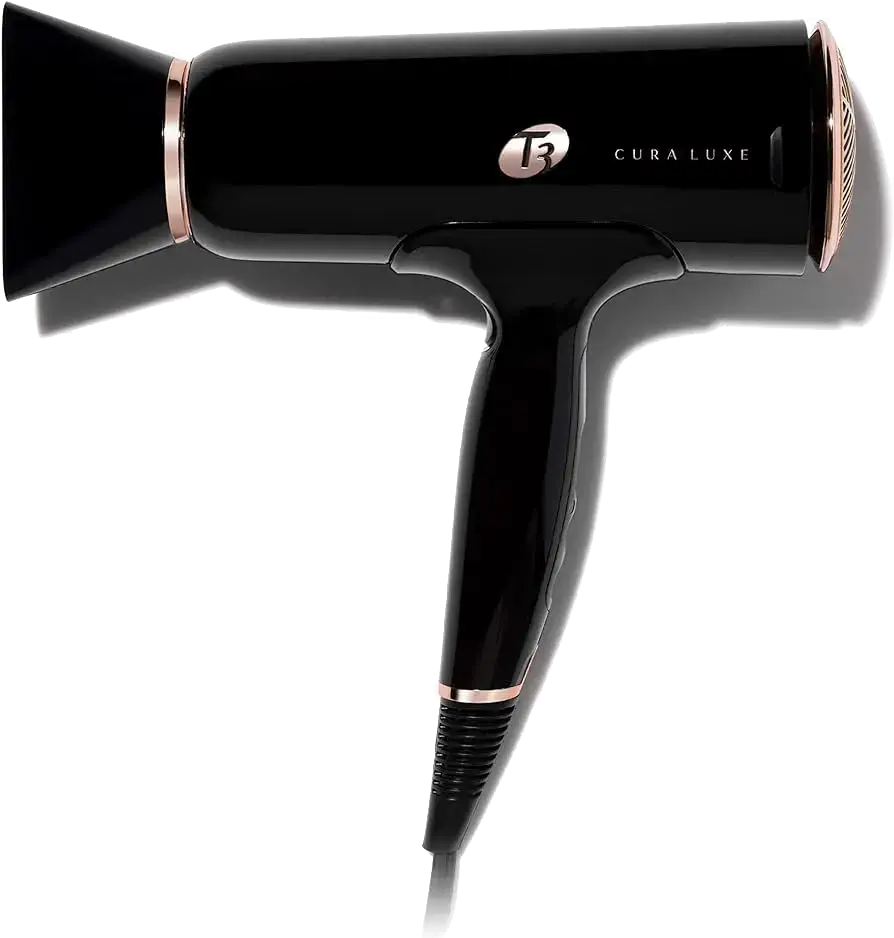
Tips for Making the Most of Your Warranty
Registering Your Product
Registering your hair dryer with the manufacturer upon purchase is crucial. This process often activates the warranty and can sometimes extend the warranty period. Registration ensures the manufacturer has a record of your purchase, making it easier to receive support and service.
Keeping Receipts and Warranty Information
Always keep your purchase receipt and a copy of the warranty in a safe place. These documents are essential for proving the date of purchase and understanding the terms of your coverage. In the event of a defect or malfunction, having these documents readily available will streamline the warranty claim process.
Understanding the Fine Print
Spend time reading and understanding the warranty’s fine print. Pay attention to what is covered and for how long, as well as any actions that could void the warranty, such as unauthorized repairs. Knowing these details can help you avoid unintentional mistakes that could lead to your warranty being invalidated.
Navigating Warranty Claims
Step-by-Step Guide to Making a Claim
Locate your receipt and warranty documentation.
Review the warranty terms to ensure your issue is covered.
Contact the manufacturer’s customer service via their recommended channel—phone, email, or online form.
Provide all necessary information about your product and the issue you’re experiencing.
Follow the manufacturer’s instructions for sending in the product for repair or replacement, if required.
How to Communicate Effectively with Customer Service
Be clear and concise when describing the issue with your hair dryer. Have your product model number, serial number, and warranty information at hand. Being polite and patient can also go a long way in ensuring a smooth process.
What to Do if Your Claim is Denied
If your warranty claim is denied, ask for a detailed explanation. If you believe the decision is unjust, you can request a second review or escalate the issue to a higher authority within the company. Sometimes, persistence and a detailed explanation can lead to a reconsideration of your claim.
Extended Warranties: Are They Worth It?
Pros and Cons of Purchasing an Extended Warranty
Pros:
Longer protection against defects and malfunctions.
Peace of mind, especially if the hair dryer is expensive.
Cons:
Additional cost, which may not be worth it for cheaper models.
Some extended warranties have stringent terms that may not add much value beyond the original warranty.
How to Decide if It’s Right for You
Consider the cost of the hair dryer, how often you use it, and the likelihood of malfunctions after the standard warranty period. If the hair dryer is a high-end model and you rely on it daily, an extended warranty might be a good investment. However, for less expensive models or if you have a backup, the additional cost might not be justified.
Conclusion
Recap of Why Hair Dryer Warranties Are Important
Hair dryer warranties offer protection against manufacturing defects and malfunctions, saving you money on repairs or replacements. They also reflect the manufacturer’s confidence in their product’s quality.
Final Tips for Choosing the Right Hair Dryer with the Best Warranty Protection
1. Look for hair dryers with a warranty that covers a significant period and includes both parts and labor.
2. Consider brands known for their customer service and warranty fulfillment.
3. Evaluate the cost of an extended warranty against the likelihood of needing it based on your usage and the product’s reliability.
Popular Post

Ultimate Guide to Using a Hair Dryer with Nozzle for Styling
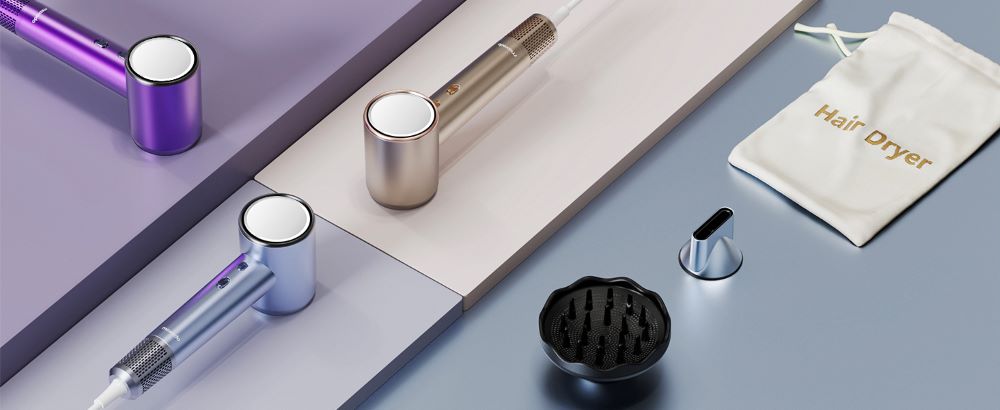
The Benefits of Using a Hair Dryer with a Diffuser
